At some point in your life you’ve probably wanted to make something, to develop, and if web apps are your kind of thing, then welcome, you’ve come to the right spot. Today, we’re going to talk about certain aspects you can use for this sphere, their basic overview and differences.
The secret of becoming a quick, adaptive and successful developer lies in using specific kinds of frameworks that help a lot in making the task faster, more adaptive etc. This has changed the world of programming language significantly and became a must in the entire process of web app development.
But what’s the framework? For those who don’t know anything or know little about this term and would like to learn, framework is a platform you use for making software apps. It’s a true foundation for building any programs for a platform of your liking. There are predefined functions that automate the procedures that demand to code. You’ll spare yourself the trouble of reinventing the wheel each time you start implementing this discipline in your routine, which also means you’ll save a lot of time avoiding some necessary steps. Pretty handy-dandy, right?
Since technology keeps growing and updating by the minute, it’s pretty logical to conclude that you have a huge variety of platforms to choose from, depending on your needs and preferences. As mentioned before it is advisable to learn web development from any of the reputed institutes or online education platforms like Intellipaat.
So let’s do a brief introduction of some of our favourites, shall we?
1. Ruby On Rail
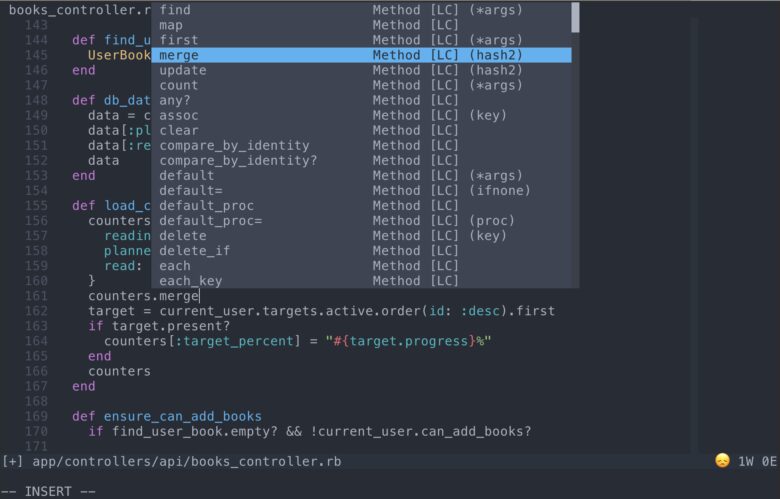
Source: vimfromscratch.com
Ruby On Rail, or shorter RoR, is a beginner-friendly model view controller written in Ruby language. It’s popular and loved by many, as it helps you get started with getting familiar with this profession much faster. It’s worth mentioning that David Heinemeier Hansson created it. It contains various tools and libraries which will assist you with broadening application functionalities and databases and saving some valuable and precious time. It has been used to create apps such as Pixlr and ASKfm.
2. Symfony
This one is a PHP platform used mainly for console applications. One of the most popular apps made under the auspices of it are BlaBlaCar and our beloved Spotify. Symfony is based on Model-View-Controller architecture, and it’s great for scalable web apps.
3. Laravel
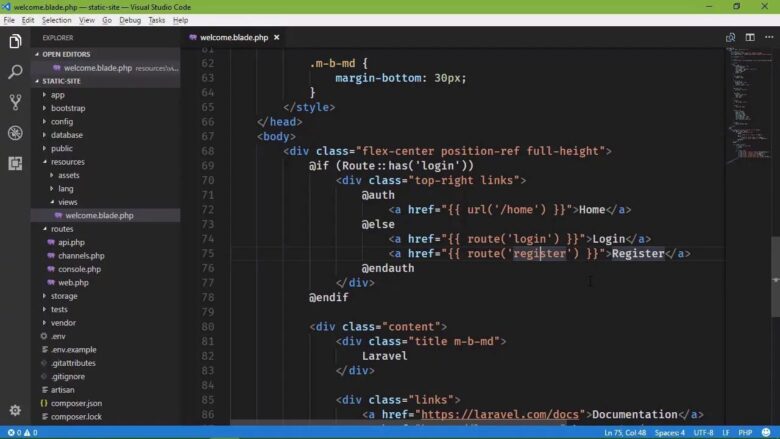
Source: code.tutsplus.com
Laravel is another framework that uses PHP language and it’s been invented by Taylor Otwell. If you’re a beginner and would like to use this platform, you might want to check out Laracasts, tutorials with tons of videos on Laravel that could be great for any beginner, or Green Route Media which could be beneficial for any Laravel fan, as it’s one of the most popular PHP platforms. Laravel source codes can be obtained through GitHub as well: for bigger projects, it doesn’t come close to Django, for example, but it truly is rookie heaven.
4. CodeIgniter
This one is a PHP MVC framework which you should use if you want to make web applications pretty fast. It gives you out of the box libraries in case you want to connect to the database and send emails, upload files or… well, you know, perform various operations on there.
It’s extendable and it provides excellent documentation: there are questions, books and tutorials answered on Codelgniter, which make it even more amazing. If you face a certain problem whose solution you haven’t found, you’d be lucky enough as someone on there has probably done that before you and posted it. This means you’d have a solution right in front of you. It also has a small footprint – close to 2MB which simplifies updating, so you’d master this one in no time.
5. NET Framework
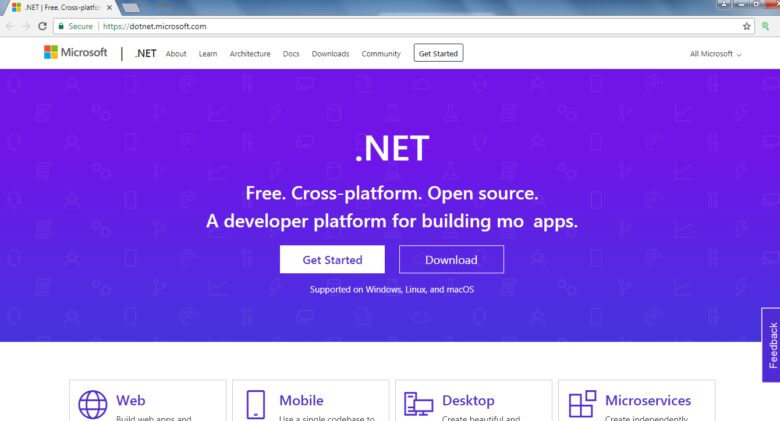
Source: testingdocs.com
This framework in particular is a platform made for software applications – usually Windows apps – and it was established by Microsoft. It’s an open-source one, made of tools, programming languages and libraries convenient for building any type of web app. Its big components are Common Language Runtime and .NET Framework Class Library.
6. Django
Django utilises Python for development. You would ask which apps are built on it? Well, mostly the major ones – or better said, the ones you probably can’t imagine your life without at this point, such as Youtube, Instagram and Google. What’s essential for Django is security, since it has techniques that provide you with the abilities to form a secure website or to enforce security features. For many, it’s a top choice – its batteries-included attribute gives us various properties that consist of messaging, authentications and so on.
7. React
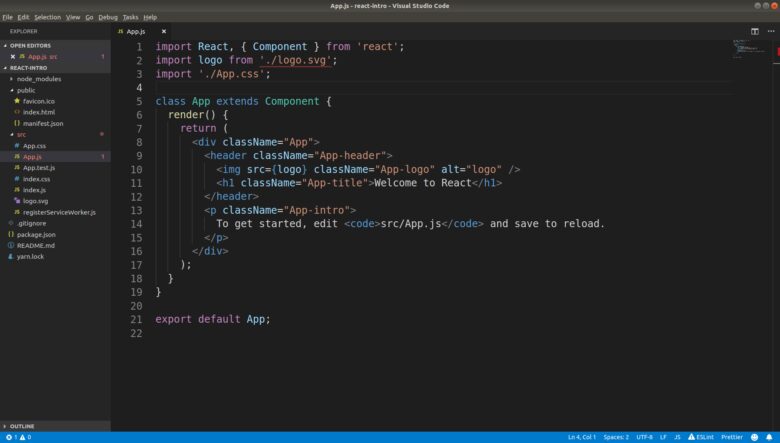
Source: medium.com
Now, this one actually isn’t a web application platform, but rather a JavaScript frontend library. It doesn’t stop developers to consider it as one, though. The MCV framework is one of the most utilized ones for the development and preserved by Facebook – believe it or not. React’s virtual dom makes the dom-utilization much quicker, easy to pick up, and all that thanks to the JSX syntax. Also, it stands out for interface creation and phone apps for IOS and Android.
To maximize customer experience, businesses construct web applications with dynamic user interfaces. Many forms of engagement, such as surveys, quizzes, and branded games, can be used to better connect with an audience. As opposed to traditional websites, web applications are designed for end-user interaction, not just for displaying content. It can be implemented by software development companies like EcDev Studio.
8. Angular
This one is a front-end platform which builds Single-Page applications, which can be considered its specialty. It has the ability to build complete client-side apps, which makes it so enriched that you can learn loads of things from this one. Angular used to utilize Javascript, but later on it turned to Typescript, a superset of Javascript. Paypal, Microsoft and Google are just several services which currently utilize it.
9. Vue.js
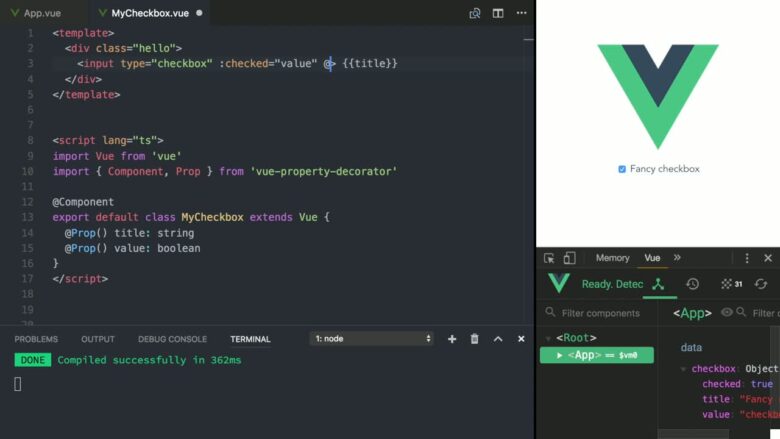
Source: creative-tim.com
Vue is rapidly rising to fame by being one of the most popular Javascript platforms. It can resolve any complexity quickly and easily as it renders component designs to run. It isn’t supported by Google and Facebook, but other big names are turning to it due to its success. Vue permits adaptation for one section of the idea that already exists and the rest would go as stated initially.
10. Next.js
Next is open-source React front-end development framework, used to create single page Javascript applications. It’s a rendering one which has a role of helping you build a SEO-friendly application which asks for minor configuration. This one is great for blogs and websites, like the ones featuring the news, since the search engines go through data without Java.
It might sound and seem too complicated, but trust us – if you learn how to perfect your craft when it comes to these elements and web application development, not only it’ll fulfill you, but it can bring you lots of abundance, great jobs and imagination!
If you want to expand your knowledge you can read more about this topic.




